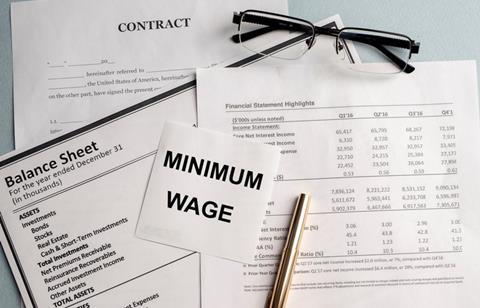
The government’s policy of ‘naming and shaming’ organisations that break minimum wage rules is an effective deterrent against non-compliance, but tougher financial penalties are needed to further minimise incentives for underpayment.
This is according to the Resolution Foundation think-tank, which found that smaller firms are more likely to lose out because of the reputational impact naming and shaming can have on their organisations, while some larger ones – including Primark, Tesco and Boohoo – have seen little impact on their share price or sales after being exposed on the government website for breaching minimum wage rules.
The organisation's No shame, no gain? report suggested that policymakers should strengthen and raise the profile of HM Revenues and Customs' (HMRC) existing programme of publicising the firms that break the rules, after the think-tank found only one in five firms had heard of the policy.
According to the Resolution Foundation, more rigorous enforcement is needed to increase the chances that non-compliant organisations are exposed. While bigger firms hit the headlines when they are named, smaller ones are more likely to be non-compliant, with the think-tank finding that minimum wage workers in micro-businesses are 37% more likely to be underpaid than those in the largest businesses.
Tougher financial penalties should also be brought in, it added. The report estimated that a firm underpaying the minimum wage would currently need to be fined around 700% of arrears to effectively counteract the savings it makes, more than three times the maximum HMRC penalty of 200% of arrears.
Resolution Foundation economist Hannah Slaughter said: “Reputation matters for businesses, and the government should raise the profile of its welcome work to name and shame those breaking minimum wage rules.
“However, naming dodgy firms only works when they are caught in the first place, so more widespread enforcement is needed. And fines are currently too low so there is little economic incentive for rule-breaking employers to change their ways.
“As well as raising the profile of the ‘naming and shaming’ regime, the government must introduce tougher financial penalties and more widespread enforcement to ensure that rule-breaking firms are caught and deterred.”
HMRC’s most recent round of “naming and shaming” earlier this year saw 191 organisations exposed for breaching minimum wage rules, including major employers such as John Lewis, McColl’s and The Body Shop.
Organisations that break minimum wage rules are fined and made to pay back what they owe to workers at current minimum wage rates.




























